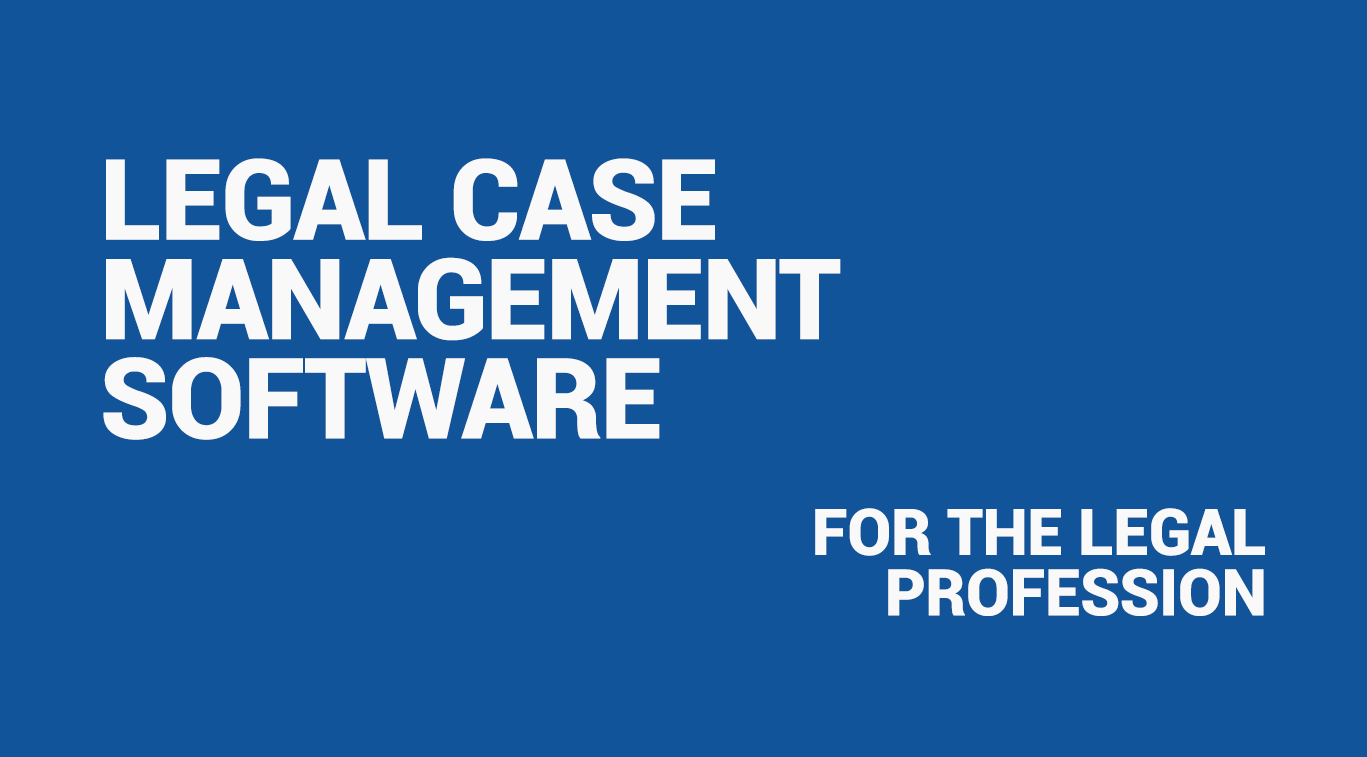Legal Case Management Software for the Legal Profession

Written by Shrisha Sapkota
Blogger

Technology has recently made a significant and swift impact on various industries, and the legal industry is no different. Law firms are adopting more and more technology in an effort to improve their efficiency and keep a competitive edge over their rivals.
One such technology is legal practice management systems. This has been one of the most adopted forms of software by legal practices across the UK, with 62% of large firms and over 30% of small firms utilising legal practice management systems [1]
What are legal practice management systems?
They are systems created to help law firms streamline their business processes and improve their performance. They provide multiple tools that help run the business side of the law firm dealing with billing, bookkeeping, case records, client records and document retention policies, to name a few. The software essentially assists in managing business operations and administrative functions of a law firm.
Legal practice management systems can be an extremely effective tool for junior lawyers and those entering the field, as law schools do not teach aspiring lawyers about the practical application of technology in the legal sector. These systems can help bridge that gap in their knowledge, assisting managers and partners to run the firm more effectively.
What to expect from a legal practice management system?
When choosing a management system, a firm needs to look at what tasks each software can help with and the firm’s specific requirements. Moreover, the firm must be able to differentiate between the different systems available to see which better meets the needs of their firm. However, the first and most important step is to understand what makes a strong legal practice management system.
Strong legal practice management systems can do various tasks that benefit the firm and optimize its workflow. These benefits range from automating administrative duties, improving billing and accounting processes, improving performance, increasing productivity, increasing collaboration and enabling easier remote working.
1) Automation of Administrative Tasks
Legal practice management systems can automate most of the key administrative tasks carried out in law firms. This includes effective document and case management, calendaring, diary management, task allocation and client appointment booking. These functions, while simple to do, can often be time-consuming and labour intensive. Hence, using practice management systems allows lawyers to better designate their time towards practising the law rather than doing menial administrative tasks.
2) Improvement in Billing and Accounting Processes
Legal practice management systems also assist in the monetary running of law firms. This includes managing accounting processes and ensuring that the firm complies with accounting regulations and financial reporting, billings, handling online payments, invoicing and tracking the firm’s expenses. These tasks can be quite difficult and often require a lot of information processing. Therefore, it is best for practice management systems to electronically carry out these tasks and eliminate any risks of human error [2].
3) Improvement in Firm Performance
Beyond simple administrative tasks, these systems can provide insights into a firm’s functioning and propose fields that require change or improvement [3]. The management system has a unique and detailed look at the firm’s overall performance, suggesting areas to strengthen the firm’s performance and capability. HSBC UK’s Legal Tech Analysis report states that 81% of law firm respondents consider legal technology the most important area of strategic development activity for their firm to support this claim [4]. Therefore, the evidence depicts that investing in technology such as legal practice management systems is valuable and worthwhile in achieving long-term strategic goals.
4) Increase in Productivity
Legal practice management software typically includes all case material and information in one place. This includes client contact information, documents, client appointments, email correspondence and billing information. As a result, there is no need to contact third parties or other employees for information, especially when needed at the last minute, as all the information is organised and stored in one place [5]. Therefore, lawyers are less reliant on each other to gain information and easily access what they are looking for by simply navigating the system.
5) Increase in Collaboration and Communication
The use of legal practice management enables greater collaboration within teams. This collaboration results from task assignment and easy file sharing features on practice management systems that make allocating tasks more convenient and efficient. Additionally, most practice management systems have chat functions that allow for greater and faster communication between team members without waiting for a long time [6].
Moreover, owing to the notifications function on practice management systems, both clients and team members are given quick updates regarding case progress or changes to the project, which eliminates the risk of there being any confusion and ensures that everyone is on the same page.
6) Enablement of Remote Working
Legal practice management systems have enabled lawyers to efficiently work remotely from anywhere globally, especially during the pandemic, lockdown, self-isolation and hotel quarantines. The software within legal practice management systems allows employees to access the firm’s database online from any device securely. [7]
Additionally, such software includes built-in client relationship management tools that streamline processes and communication to ensure that you have the necessary information to meet your clients’ needs regardless of where you are working. [8] Lastly, such software also includes time-tracking tools, ensuring you work productively despite working out of the office [9].
Does your firm need to make the jump?
It is quite clear that legal practice management systems are effective tools in helping a firm grow and manage its business. However, it is important to understand the needs of every individual firm and weigh whether investing in such software would be worthwhile and whether the change would align with the firm’s current business model and goals. While it can be a general way to increase a firm’s productivity, the technology often comes at a high monetary cost. Therefore, to get the best result and make the most out of investing in such technology, a degree of investment will be required in training the employees to use the specific software.
Here are some key questions to consider when deciding whether your firm requires a legal management system:
- Are the firm’s administrative tasks, such as calendaring and document management, becoming too difficult and time-consuming?
- How much time is being spent on billing clients and managing payments?
- Do you have easy access to your work documents outside the office? Is this something you require?
- How much time is being spent managing, finding and organising information regarding accounting and other administrative tasks? [10]
The answers to these questions will guide whether it is time for a firm to invest in legal practice management software.
References
[1] https://lawcommissionofindia.nic.in/adr_conf/niranjan%20case%20mnt12.pdf
[3] https://legodesk.com/legopedia/case-management-systems/
[4] https://www.i-sight.com/resources/what-is-case-management-software/
[5] https://kissflow.com/workflow/case/case-management-overview/#process
[6] https://kissflow.com/workflow/case/case-management-overview/#process
[7] https://www.sumologic.com/glossary/cloud-management/
[8] https://kissflow.com/workflow/case/cloud-case-management-overview/#:~:text=Cloud%20Based%20Case%20Management%20Software%20Benefits%20for%20Businesses&text=They%20allow%20users%
20to%20manage,fields%20all%20in%20one%20place.
[10] https://www.cloudlex.com/frequently-asked-questions/questions/what-is-legal-case-management-software
[11]https://www.investopedia.com/terms/e/end-to-end.asp#:~:text=End%2Dto%2Dend%20describes%20a,anything%20from%20a%20third%20party.
[12] https://www.cloudlex.com/frequently-asked-questions/questions/what-is-legal-case-management-software
[13] https://www.cloudlex.com/frequently-asked-questions/questions/what-is-legal-case-management-software
[14] https://www.i-sight.com/resources/what-is-case-management-software/
[15] https://financesonline.com/top-20-legal-case-management-software-programs-small-medium-law-firms/
[16] Perry, S. (July 24, 2006). Even paper tigers need technological taming. New Jersey Law Journal, p.NA. Retrieved August 20, 2007, from Academic OneFile Gale: http://find.galegroup.com.dml.regis.edu/itx/start.do?prodId=AONE
[17] https://epublications.regis.edu/cgi/viewcontent.cgi?article=1440&context=theses








